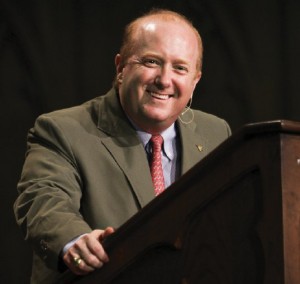It may be the best known Bible verse in our culture: “Judge not, that you be not judged” (Matt. 7:1).
As one of our society’s most popular verses, it is also one of the most misunderstood. Too many people, non-Christian and Christian, take Jesus’ words to be a blanket rejection of all moral evaluation. But given that Jesus alludes to his opponents as dogs and pigs five verses later, it’s safe to think Jesus wasn’t condemning every kind of judgment. We see from the rest of the Gospel that Matthew 7:1 is not inconsistent with strong criticisms, negative statements, church discipline, and warnings about hell. Judgmentalism is not the same as making ethical and doctrinal demands or believing others to be wrong.
And yet, after all the necessary qualifications, we must not mute this important command. As sinners, we are apt to assume the worst about people. We are eager to find favorable comparisons that make ourselves look good at the expense of others. We are quick to size people up and think we have them figured them out. But I have learned over the years–both as the giver and receiver of judgmental assumptions–that it’s best not to assume.
Don’t assume you know all the facts after hearing one side of the story.
Don’t assume the person is guilty just because strong charges are made against him.
Don’t assume you understand a blogger’s heart after reading one post.
Don’t assume that famous author, preacher, athlete, politician, or local celebrity won’t read what you write and don’t assume they won’t care what you say.
Don’t assume the divorced person is to blame for the divorce.
Don’t assume the single mom isn’t following Jesus.
Don’t assume the guy from the Mission is less of a man or less of a Christian.
Don’t assume the pastor looking for work is a bad pastor.
Don’t assume the church that struggles or fails is a bad church.
Don’t assume you’d be a better mom.
Don’t assume bad kids are the result of bad parents.
Don’t assume your parents are clueless.
Don’t assume everyone should drop everything to attend to your needs, and don’t assume no one will.
Don’t assume the rich are ungenerous.
Don’t assume the poor are lazy.
Don’t assume you know what they are all like after meeting one or two of their kind.
Don’t assume you should read between the lines.
Don’t assume you have interpreted the emotions of the email correctly.
Don’t assume everyone has forgotten about you.
Don’t assume they meant to leave you off the list.
Don’t assume everyone else has a charmed life.
Don’t assume a bad day makes her a bad friend.
Don’t assume the repentance isn’t genuine.
Don’t assume the forgiveness isn’t sincere.
Don’t assume God can’t change you.
Don’t assume God can’t love you.
Don’t assume God can’t love them.


 We live in the information age, where knowledge is increasing at a speed hardly fathomed in former generations. Yet in the church, knowledge of God’s word seems to be at an all time low. In a recent Christian booksellers convention barely 1 in a 100 writers could provide a reasonable response to the question of what it means to be saved.
We live in the information age, where knowledge is increasing at a speed hardly fathomed in former generations. Yet in the church, knowledge of God’s word seems to be at an all time low. In a recent Christian booksellers convention barely 1 in a 100 writers could provide a reasonable response to the question of what it means to be saved. by RC Sproul Jr.
by RC Sproul Jr.